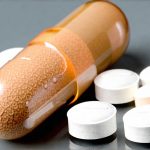Bladder support is often discussed in terms of pelvic floor exercises and surgical interventions, but a foundational aspect – hydration – frequently gets overlooked. Many people focus on simply drinking enough water, believing that’s sufficient for bladder health. However, the type of fluids we consume significantly impacts bladder function and can either exacerbate or alleviate symptoms associated with conditions like overactive bladder, urgency, frequency, and even interstitial cystitis. This isn’t about restricting fluids; it’s about making informed choices to support a balanced and healthy bladder environment. A nuanced approach to hydration, focusing on “neutral” fluids – those that are less likely to irritate the bladder – can be profoundly beneficial for individuals seeking long-term bladder health and improved quality of life.
The concept of neutral hydration stems from understanding how different beverages interact with the delicate lining of the bladder. Highly acidic or caffeinated drinks, for instance, can act as irritants, causing inflammation and triggering those uncomfortable urges to rush to the bathroom. While everyone responds differently, identifying and minimizing these triggers while prioritizing fluids that are gentle on the bladder is a powerful step towards regaining control. It’s about finding a personalized hydration strategy, one that supports not just overall health but specifically addresses the unique needs of your urinary system. This isn’t a quick fix; it requires awareness, experimentation, and consistent effort, but the rewards – reduced urgency, improved sleep, and increased confidence – are well worth the investment.
Understanding Neutral Hydration
Neutral hydration is about choosing fluids that minimize bladder irritation and inflammation. It’s not necessarily about drinking more water, although adequate overall hydration remains crucial for health. The goal is to find a balance between staying hydrated and avoiding substances known to exacerbate bladder symptoms. This concept acknowledges that the bladder has a sensitivity level – what might be neutral for one person could be irritating for another. Therefore, a period of mindful observation and experimentation is often necessary to pinpoint your personal triggers and tolerances. Identifying these individual sensitivities is key. To learn more about managing bladder symptoms through dietary changes, consider exploring how to manage bladder symptoms through diet.
The impact of various beverages on the bladder can be quite significant. Common culprits include: caffeine (coffee, tea, soda), alcohol, carbonated drinks, citrus juices, tomato-based products, artificial sweeteners, and spicy foods. These substances often contain compounds that can directly irritate the bladder lining or increase inflammation. Conversely, neutral fluids generally lack these irritating properties and contribute to a calmer urinary environment. Examples include water, herbal teas (non-citrus), diluted coconut water, and certain types of electrolyte solutions designed for sensitive bladders.
It’s important to remember that hydration isn’t solely about the beverage itself; how you hydrate matters too. Sipping fluids throughout the day is generally better than gulping large amounts at once, as it avoids overwhelming the bladder. Also, timing your fluid intake can be helpful – reducing consumption a few hours before bedtime can minimize nighttime awakenings for those with frequent urination. Ultimately, neutral hydration is a proactive approach to bladder health that empowers individuals to take control of their symptoms and improve their overall well-being.
Identifying Your Bladder Triggers
Pinpointing your individual bladder triggers requires careful observation and a bit of detective work. The best way to start is by keeping a detailed bladder diary. This involves recording:
1. What you drink, including the type and amount of fluid.
2. When you drink it.
3. Your subsequent urinary symptoms (urgency, frequency, pain, etc.).
4. The time and volume of each urination.
This diary should be kept for at least a week, ideally longer, to provide a comprehensive picture of how different fluids affect your bladder. Be honest and thorough in your recordings – even seemingly insignificant details can be important. After a week or two, review the diary to identify patterns and correlations between specific beverages and symptom flare-ups.
The process isn’t about eliminating all potential triggers immediately; it’s about gradual elimination and reintroduction. Once you suspect a particular beverage is causing issues, try removing it from your diet for a few days or weeks and see if your symptoms improve. Then, cautiously reintroduce it in small amounts to assess your tolerance. If symptoms return, that beverage is likely a trigger for you. Remember this process is individualized – what works for one person won’t necessarily work for another.
Finally, don’t underestimate the power of professional guidance. A healthcare provider specializing in pelvic health or urology can offer personalized advice and support throughout this process. They can also help rule out other potential causes of bladder symptoms and ensure you are receiving appropriate care. Self-diagnosis is never recommended. For those interested in a more comprehensive approach to bladder health, learning about improving bladder health through diet and habits can be incredibly beneficial.
The Role of Water & Electrolytes
While neutral hydration focuses on minimizing irritants, adequate water intake remains paramount for overall health and bladder function. Dehydration concentrates urine, making it more irritating to the bladder lining. Aiming for around eight glasses (64 ounces) of water per day is a good starting point, but individual needs vary based on activity level, climate, and other factors. Listen to your body’s signals – thirst is an indicator, but don’t wait until you’re parched to drink!
However, plain water isn’t always enough, especially if you experience frequent urination or fluid loss through sweating. Electrolytes – minerals like sodium, potassium, magnesium, and chloride – are essential for maintaining proper fluid balance within the body. When electrolyte levels are low, your kidneys may struggle to regulate fluid effectively, potentially leading to increased urination and bladder irritation. Consider incorporating fluids with balanced electrolytes, such as diluted coconut water or specifically formulated electrolyte solutions designed for sensitive bladders.
Be cautious of sports drinks marketed towards athletes, as many contain high amounts of sugar and artificial ingredients that can irritate the bladder. Look for options with low sugar content and natural sources of electrolytes. Proper hydration, combined with balanced electrolytes, supports optimal bladder function and minimizes irritation, creating a healthier urinary environment. This is particularly important if you are physically active or live in a hot climate. You may also find hydration strategies for bladder support helpful for optimizing your fluid intake.
Beyond Beverages: Dietary Considerations
Neutral hydration isn’t solely about the drinks we consume; it extends to our overall dietary choices. Certain foods can also irritate the bladder or contribute to inflammation, exacerbating symptoms. As mentioned earlier, acidic fruits (citrus), tomato-based products, and spicy foods are common culprits. However, individual sensitivities vary greatly, so a bladder diary can help identify your specific food triggers.
Beyond avoiding irritants, focusing on anti-inflammatory foods can be beneficial for bladder health. These include:
– Fatty fish (salmon, tuna) rich in omega-3 fatty acids.
– Berries packed with antioxidants.
– Leafy green vegetables providing essential vitamins and minerals.
– Whole grains offering fiber and sustained energy.
Maintaining a healthy weight and avoiding processed foods are also crucial for reducing inflammation throughout the body, including the urinary system. A balanced diet supports overall health and can significantly impact bladder function. A holistic approach to hydration extends beyond beverages. To understand more about how your food choices influence bladder health, researching daily meals that support bladder lining health is a great starting point.
Furthermore, consider the role of gut health. Research suggests a strong connection between the gut microbiome and bladder health. An imbalance in gut bacteria can contribute to inflammation and increased bladder sensitivity. Incorporating probiotic-rich foods (yogurt, kefir) or supplements may help restore gut balance and improve bladder function. This is an emerging area of research, but it highlights the interconnectedness of bodily systems and the importance of a comprehensive approach to health.





















